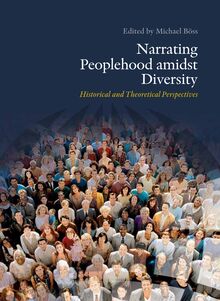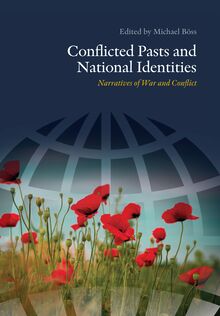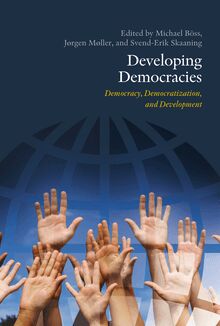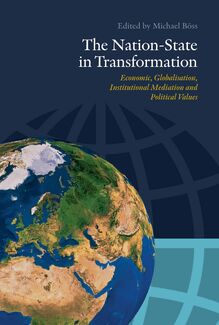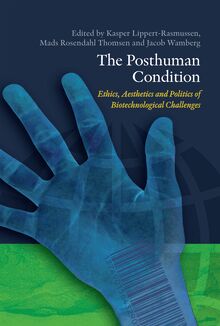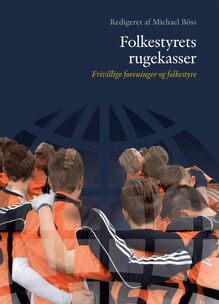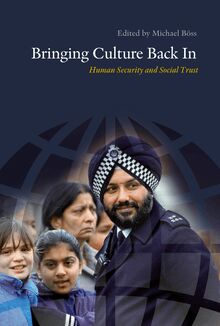-
 Univers
Univers
-
 Ebooks
Ebooks
-
 Livres audio
Livres audio
-
 Presse
Presse
-
 Podcasts
Podcasts
-
 BD
BD
-
 Documents
Documents
-
- Cours
- Révisions
- Ressources pédagogiques
- Sciences de l’éducation
- Manuels scolaires
- Langues
- Travaux de classe
- Annales de BEP
- Etudes supérieures
- Maternelle et primaire
- Fiches de lecture
- Orientation scolaire
- Méthodologie
- Corrigés de devoir
- Annales d’examens et concours
- Annales du bac
- Annales du brevet
- Rapports de stage
La lecture à portée de main
Découvre YouScribe en t'inscrivant gratuitement
Je m'inscrisDécouvre YouScribe en t'inscrivant gratuitement
Je m'inscrisEn savoir plus
En savoir plus

Description
Sujets
Informations
| Publié par | Aarhus University Press |
| Date de parution | 22 mai 2014 |
| Nombre de lectures | 0 |
| EAN13 | 9788771243550 |
| Langue | English |
| Poids de l'ouvrage | 7 Mo |
Informations légales : prix de location à la page 0,1000€. Cette information est donnée uniquement à titre indicatif conformément à la législation en vigueur.
Extrait
Conflicted Pasts and National Identities
1284_Conflicted_Pasts_trykklar.indd 1 02/05/14 10.36Conflicted Pasts and
National Identities
Narratives of War and Conflict
Edited by Michael Böss
1284_Conflicted_Pasts_trykklar.indd 2 02/05/14 10.36Conflicted Pasts and
National Identities
Narratives of War and Conflict
Edited by Michael Böss
AARHUS UNIVERSITY PRESS
1284_Conflicted_Pasts_trykklar.indd 3 02/05/14 10.36Conflicted Pasts and National Identities
MatchPoints 6
© The authors and Aarhus University Press
Typeset by Ryevad Grafisk
Cover design by Jørgen Sparre
E-book production by Narayana Press,
ISBN 978 87 7124 355 0
ISSN 1904‑3384
Aarhus University Press
Langelandsgade 177
DK – 8200 Aarhus N
www.unipress.dk
Published with the financial support of The
Aarhus University Research Foundation
INTERNATIONAL DISTRIBUTORS
Gazelle Book Services Ltd.
White Cross Mills
Hightown, Lancaster, LA1 4XS
United Kingdom
www.gazellebookservices.co.uk
ISD
70 Enterprise Drive
Bristol, CT 06010
USA
www.isdistribution.com
Weblinks were active when the book was
printed. They may no longer be active.
1284_Conflicted_Pasts_trykklar.indd 4 02/05/14 10.36Contents
Introduction: Remembering the Nation in War and Conflict
Michael Böss, Associate Professor of History and Social Science at Aarhus University . . . . . . . . . . . . . . . . . . 7
Narrative Engagement and Narrative Templates
James V. Wertsch, Marshall S. Snow Professor in Arts & Sciences at Washington University in St Louis .. 18
Memory Before and After Nationalism: A Revision
Judith Pollmann, Professor of Early Modern Dutch History at Leiden University in the Netherlands ..... 31
History in the Clutch of Memory: The Failed Swedish Assault on Copenhagen
11 February 1659 in Commemorative Culture 1659‑2009
Sebastian Olden‑Jørgensen, Associate Professor of History at Saxo Institute, Copenhagen University ... 43
Australian Generations? Transformative Events, Memory, and Generational Identity
Alistair Thomson, Professor of History at Monash University, Melbourne ............................. 55
Generational Change and Conflicted Memories of World War II in Australia
Paula Hamilton, Professor of History at University of Technology, Sydney. ............................ 69
Self, Nation, and Generational Memory: A Case Study of Trauma and Self‑Recovery
Michael Böss, Associate Professor of History and Social Science at Aarhus University .................. 84
The Loss of Living Memory: The Cultural Reception of Harry Patch
(2008‑2009), The Last British Veteran of the First World War
Marlene A. Briggs, Assistant Professor of English at the University of British Columbia ................ 94
Historians and the Politics of Commemoration: An Irish Case Study
Tom Dunne, Professor Emeritus of History at University College Cork ................................ 113
National Memory on Fire! The Case of the Museum of Danish Resistance 1940‑1945
Esben Kjeldbæk, former Head of The Museum of Danish Resistance 1940‑1945 ..................... 125
Changing Narratives of War: The World War I Monument in Aarhus
Bjarne Søndergaard Bendtsen, Ph.D. ............................................................. 138
The Swedish Miners’ Strike of 1969‑1970: Remembering Conflict in a Context of Consensus
Robert Nilsson Mohammadi, Ph.D. student at the Department of History, Stockholm University ....... 151
1284_Conflicted_Pasts_trykklar.indd 5 02/05/14 10.36Contents
1284_Conflicted_Pasts_trykklar.indd 6 02/05/14 10.36■ Introduction: Remembering
the Nation in War and Conflict
Michael Böss, Associate Professor of History and Social Science at
Aarhus University
In the last quarter century, there has been a turn toward studies of cultural and
1social memory. How can we explain this newfound interest in cultural memory?
One pioneer, the sociologist Paul Connerton, believes that no single factor explains
it, but sees it as the result a confluence of three powerful “forces” coming together
from 1980. The first force he describes as “the long shadow of World War II”,
which continues to impact the Western World; the second force is the issue of
“transitional justice” in countries like Argentina, Chile, El Salvador, South Africa,
and states of the former communist bloc. In the 1980s and 1990s, these countries
had moved away from a totalitarian or authoritarian past and toward democracy.
Due to their difficult pasts, they needed to reflect upon their pasts and examine
their collective memories of their experiences in order to determine what attitude to
take toward the previous perpetrators and victims of injustice. The final force is the
process of decolonisation; this had significant repercussions for both the colonised
and the colonisers. Ex-colonial powers, especially Britain and France, were forced
to reconsider their own past – with a mixture of shame and nostalgia – and former
colonies felt a need to re-appropriate their own memories (Connerton 2011).
Although many contemporary historians engage in memory studies, some are
sceptical of the use of memory in historical research. The reasons are obvious:
historians prefer to study reliable traces of evidence of the past, whereas memory
studies are concerned with memories of the past. And memories, we all know,
are highly susceptible to error. Historians are trained to be sceptical of memory
as evidence of the past, whereas students of memory do not question subjective
memories, but regard them as valid evidence of personal experience, and of the
way in which societies “remember”. They do not question memories, but use
them to understand how their respondents relate to the past, and how past events
1. For excellent introductions to memory studies, see e.g. Olick et al. 2011; Geoffrey Cubitt 2007; and Barbara A.
Misztal 2003.
7
This page is protected by copyright and may not be redistributed
1284_Conflicted_Pasts_trykklar.indd 7 02/05/14 10.36have influenced the ways that present individuals, communities, and societies
understand themselves.
However, historians and students of memory – psychologists, anthropologists,
and sociologists – do share some fields of interest: many historians consider the
political and public uses of the past, and social historians may use memories to
document how such events were perceived by ordinary people and reflected in the
lives and mentalities of a given age. Additionally, historical studies of totalitarian
regimes often reveal how repression often takes the form enforced forgetting; the
interview is therefore an indispensable method for uncovering a past which has
been silenced. Thus, although we need to distinguish between memory studies and
history, students of both disciplines may learn from each other continue to shed
light on each others’ perspectives; this cannot proceed if the two disciplines blur
into one.
This was the considerations behind the call we issued for an interdisciplinary
conference in May 2012 at Aarhus University, titled: “Conflict in Memory:
Interpersonal and Intergenerational Remembering of War, Conflict and Transition”. The
purpose of the conference was to document and discuss how war, conflicts, and
major social transitions play significant roles in defining communal identities, often
with reference to events that occurred long ago. The present collection mirrors this
purpose, with analyses of commemorative practices and monuments, and
discussions about how memories of conflict relate to national and generational identities.
Commemoration has been an instrument of power throughout history. Since
before the Middle Ages, bards, chroniclers, and scribes served chieftains, kings,
lords, and priests by preserving dynastic genealogies, and curating the memory of
heroic and wise ancestors to legitimise claims to power. However, until the
emergence of the nation state – around the late 1600s – such acts of commemoration
were of little or no concern to the masses; local communities mostly derived a sense
of continuity with the past through memories relevant to their own lives.
The expansion of the culture of commemoration came with the spread of
Christianity. The Christian church introduced a mythically grounded chronology of the
world – depicted in religious art and iconography – in light of which, the various
ethnic communities of Europe began to understand themselves and their origins
(Kidd 1999). Still, prior to the Reformation, the universal character of the church
meant that its cult of commemoration – enacted through rites, holy days, and
feasts – encouraged people to identify with the eternal and sacred destiny of
mankind, rather than with the temporal and secular “stories” of their medieval lords
and kings. This pattern was broken with the Reformation: rulers questioned the
principle of universality, urging their subjects to regard the “national” church as
the true mediator of divine verities. In England, the nation itself was even granted
a role in the great story of di
-
 Univers
Univers
-
 Ebooks
Ebooks
-
 Livres audio
Livres audio
-
 Presse
Presse
-
 Podcasts
Podcasts
-
 BD
BD
-
 Documents
Documents
-
Jeunesse
-
Littérature
-
Ressources professionnelles
-
Santé et bien-être
-
Savoirs
-
Education
-
Loisirs et hobbies
-
Art, musique et cinéma
-
Actualité et débat de société
-
Jeunesse
-
Littérature
-
Ressources professionnelles
-
Santé et bien-être
-
Savoirs
-
Education
-
Loisirs et hobbies
-
Art, musique et cinéma
-
Actualité et débat de société
-
Actualités
-
Lifestyle
-
Presse jeunesse
-
Presse professionnelle
-
Pratique
-
Presse sportive
-
Presse internationale
-
Culture & Médias
-
Action et Aventures
-
Science-fiction et Fantasy
-
Société
-
Jeunesse
-
Littérature
-
Ressources professionnelles
-
Santé et bien-être
-
Savoirs
-
Education
-
Loisirs et hobbies
-
Art, musique et cinéma
-
Actualité et débat de société
- Cours
- Révisions
- Ressources pédagogiques
- Sciences de l’éducation
- Manuels scolaires
- Langues
- Travaux de classe
- Annales de BEP
- Etudes supérieures
- Maternelle et primaire
- Fiches de lecture
- Orientation scolaire
- Méthodologie
- Corrigés de devoir
- Annales d’examens et concours
- Annales du bac
- Annales du brevet
- Rapports de stage
